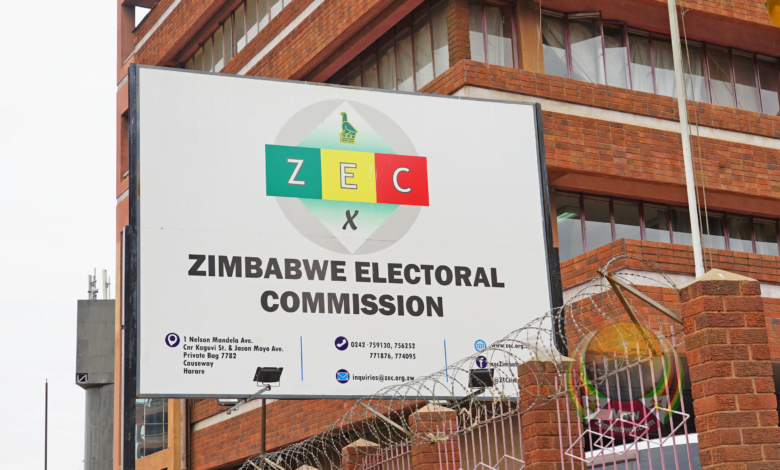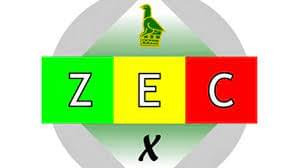A SHORT HISTORY ON THE EVOLUTION OF ZIMBABWE’S VOTERS ROLL AND WHY SECTION 23(3) OF THE ELECTORAL ACT IS OUTDATED, PURPOSELESS, UNREASONABLE AND UNCONTITUTIONAL
IT WOULD BE INSTRUCTIVE and useful to study and understand the evolution of the voters [common] roll in Zimbabwe from a national voters roll in 1980 where eligibility was the National ID, to a constituency-based voters roll in 1985 with residence requirements which kept changing over 23 years from 1985 to 2008 when Zimbabwe abandoned a constituency-based voters roll in favour of a ward based voters roll in 2008.
The ward-based voters roll had more or less similar residence requirements that applied to the constituency-based voters roll first introduced in 1985.
One of the major reasons for the change from a constituency to a ward-based voters roll was the persistent allegation of multiple voting across wards, based on claims that there were some mobile voters who would routinely and systematically be moved across wards in a constituency for multiple voting, meaning for rigging, purposes.
Alternatively, it was alleged that the system used to manipulate the voters roll by taking advantage of the fact that – under the constituency-based voters roll – voters were free to vote in any ward in the constituency and at any polling station in that ward. This, it was alleged, created the possibility of having multiple voting – and thus rigging- across wards and across polling stations in a constituency by cloned or phantom voters; through a paper and pencil scheme that did not require any person whose details had been cloned to be involved; hence it was alleged that the scheme made it possible to create phantom or ghost voters.
The ward-based voters roll did not last long. It was used only in 2008, as allegations of multiple voting across polling stations through cloned voters or ghost voters persisted.
It was felt that to bring multiple voting across polling stations by cloned or ghost voters, every eligible voter should be registered at only one place to vote there and nowhere else. This led to the introduction of the polling station-based voters roll in 2013.
Strictly speaking, unlike the constituency and ward-based voters roll, the polling station-based voters roll under the BVR system cannot be said to be residence based. It is address or location based, the address can be a workplace, a school, a store, a church, a village and so on.
It is in this connection that section 23(3) of the Electoral Act which requires registered voters to be resident in the constituencies for a continuous period of 18 months – and which is at the centre of the case between Lovedale Mangwana and Saviour Kasukuwere, is patently unconstitutional in terms of section 66 of the Constitution which guarantees freedom of movement and residence and which in 66(2)(b) and (c) specifically provides that, “every Zimbabwean citizen and everyone else who is legally in Zimbabwe has the right to reside in any part of Zimbabwe, and to leave Zimbabwe”.
Section 23(3) of the Electoral Act is also unconstitutional in that, in terms of section 86(2) of the Constitution, it puts an unreasonable and unjustifiable limitation on the right to vote enshrined in section 67 of the Constitution. It can’t be right that a right that is a historic gain of the liberation struggle, the right to vote, whose clarion call was the attainment of “one man one vote”, is taken away in terns of section 23(3) of the Electoral Act “by operation of law”.
For these and related reasons, the High Court application challenging the constitutionality of section 23(3) of the Electoral Act – filed by Kantor and Immerman Legal Practitioners on behalf of Nqobani Sithole a leading human rights lawyer based in Bulawayo – is timely and critically important for entrenching the gains of the liberation struggle enshrined in section 3 of the Constitution.
Constitutional issues aside, section23(3) of the Electoral Act is also outdated and thus no longer relevant because no election in Zimbabwe is conducted on the basis of a constituency voters roll, as used to be the case between 1985 and 2008.
It was no surprise that in his judgment Justice David Mangota made the following correct obiter dictum about section 23(3) of the Electoral Act:
“The law as stated in the section of the Act was made by the Legislature. The section does not spell out its purpose. The parties to this case did not address me on the mischief which the Legislature intended to cure when it enacted the law. They left that aspect of the case to conjecture. Yet it is a fact that each law which the lawmaker promulgates aims to address a particular mischief which the Legislature would have observed at the time that it makes a law”.
So, section 23(3) of the Electoral Act which is about a constituency voters roll, and which requires voters to be resident in the constituencies in which they are registered for a period of 18 continuous months, failure of which they would be deemed to have been deregistered by operation of law, does not have a purpose in so far as it does not state what mischief it seeks to remedy. According to Justice Mangota, the legislature left the issue to “conjecture”.
But, alas, instead of ending there and not venturing into conjecture, Justice Mangota then astonishingly usurped the constitutional role of the legislature by coming up with his own utterly outrageous conjecture:
“It is my considered view that, in providing as it did in s 23 (3) of the Act, the Legislature’s intention was/is to allow only persons who are familiar with the issues which are in Zimbabwe the right to vote or to be voted in an election. It considered that the person’s knowledge of the issues informs the way in which he or she would, if elected into any public office, define the correct path for the people who are in this country to follow. It, in short, preferred persons who are abreast with the challenges which the country is facing to vote or to be voted into a public office to persons who view Zimbabwe’s challenges from the window of their computer or from some newspaper which circulates in the area where they are staying. It considered that a person’s absence from his constituency or from Zimbabwe for a continuous period of eighteen months or more to be sufficient for one not to be abreast with issues which obtain in Zimbabwe. It, in its wisdom or lack of it, placed emphasis on the point that such a person as remains outside his or her constituency, or fortiori his or her country, should be disenfranchised. Disenfranchised because his or her vote, let alone his or her occupation of a public office, would not add any value or benefit to the people of Zimbabwe”.
It is unfortunate that Justice Mangota proceeded to formulate his own unconstitutional conjecture to “clarify” the mischief that he said the legislature failed to address in section 23(3) of the Electoral Act. Justice Mangota squandered an opportunity to find that the section is in fact outdated because it is premised on a constituency voters roll that is no longer used for any election, and which has since been replaced by a polling station voters roll whose appropriateness in terms of the Fourth Schedule of the Constitution does not have residential requirements that are in section 23(3) of the Electoral Act.
The polling station voters roll has arrived, the constituency and ward voters rolls have fallen by the wayside.
Key to the polling station voters roll is that it’s a BVR system. This means that a voter cannot be registered at more than one polling station, and certainly should not be, if the system is working as well as it should be.
That should not happen. No name of a voter should appear at double or multiple polling stations. This was a major and a progressive transformation of the voters roll in Zimbabwe.
The fact that the voters roll in Zimbabwe is now polling station based does not mean the country has done away with the consolidated national voters roll, consolidated constituency voters roll and a consolidated ward voters roll. The
@ZECzim
still prepares and maintains these in terms of the Electoral Act, but only for administrative purposes and not for the conduct of elections. The only voters roll used for the conduct of elections is the polling station voters roll.
The consolidated national, constituency and ward voters rolls are useful for researching and analysing the polling station voters roll to test – for example – its credibility, to ensure that no voter is registered at more than one polling station. Such research, which is critically important, cannot be reasonably done by ordinary voters or even election candidates. It’s research and analysis requiring technical capacity, resources and tools of analysis.
Otherwise, a voter ought to be able to “research and analyse” a voters roll to see if his or her name and the relevant personal details are on the voters roll for his or her polling station, and that they are captured accurately. A polling station voters roll is user or voter friendly not least because it’s manageable, since on average, it has between 500 and 1,000 registered voters and should not have more than 1,000.
It is therefore quite clear from the foregoing that there are in fact and at law four different voters rolls, and that of the four only the polling station is used for elections; the other three are used only for administrative purposes.
While the contents of the four voters rolls should complement and validate each other, the legal position is that the contents of the polling station voters roll take precedence over the other voters rolls and that where there’s a discrepancy between an electronic copy and a printed copy of any voters roll, the printed copy is the valid copy!










